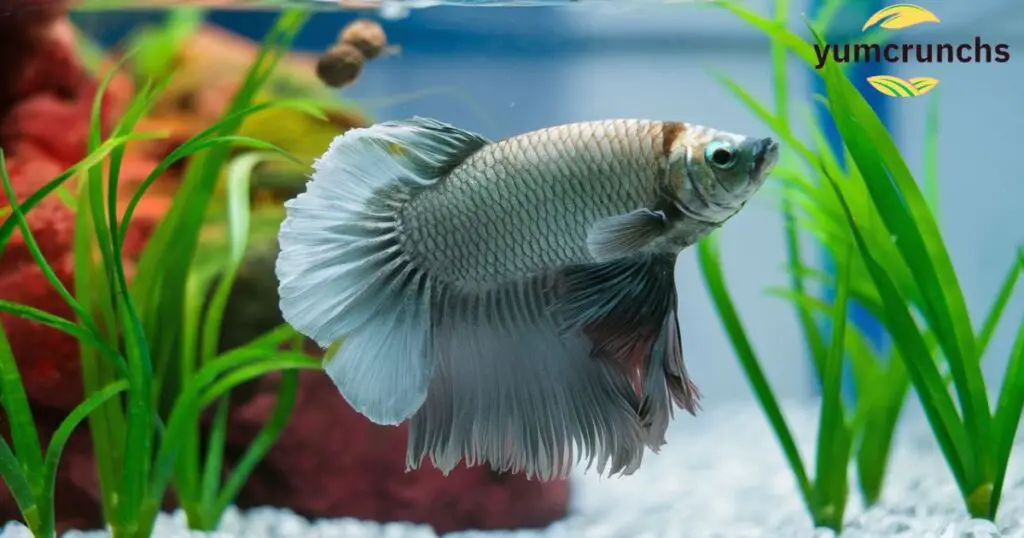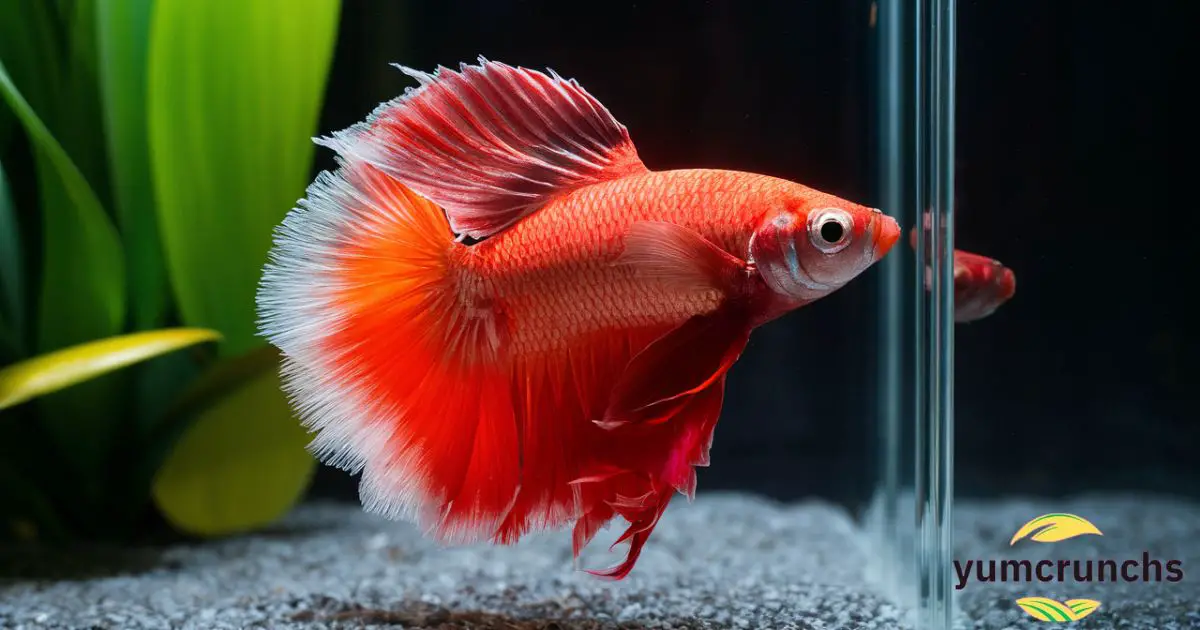Betta fish are popular pets known for their vibrant colors and elegant fins. One common concern among betta fish owners is their feeding schedule. Many wonder, How long can betta fish go without food? Understanding the dietary needs of betta fish is crucial for their health and well-being.
Imagine you’re planning a vacation and need to leave your betta fish at home. You might be wondering, How long can my betta fish survive without food? This question arises from a genuine concern for your pet’s welfare. Let’s explore the factors that determine how long betta fish can go without eating.
Betta fish can survive for about 7 to 14 days without food. However, this duration can vary based on factors like the fish’s overall health, age, and water temperature. While bettas have a unique ability to endure short periods without food, prolonged fasting can lead to health issues. It’s essential to provide proper care, including regular feeding, to ensure your betta fish remains healthy and happy.
Understanding Betta Fish Dietary Needs
Betta fish have specific dietary requirements for optimal health. Their diet primarily consists of protein-rich foods like pellets and flakes. These foods should be specifically formulated for bettas.
In addition to pellets and flakes, bettas also enjoy occasional treats like bloodworms or brine shrimp. Overfeeding can lead to health problems, so it’s crucial to maintain a balanced diet. Understanding betta fish dietary needs ensures they thrive in your care.
Essential Nutrients for Betta Fish
Betta Splendens require various essential nutrients to stay healthy. These include proteins, fats, vitamins, and minerals. Proteins are crucial for muscle development and overall growth. Fats provide energy and help maintain cell structure.
Vitamins and minerals support various bodily functions, including immune system health and metabolism. A balanced diet rich in these nutrients is vital for betta fish well-being. Ensuring your betta receives all essential nutrients is key to promoting longevity and vitality.
Feeding Frequency
Betta fish should be fed small portions 2-3 times daily. Overfeeding can lead to health issues like bloating. Consistency in feeding helps maintain their health and well-being.
Factors Affecting Betta Fish Survival Without Food

Several factors influence how long betta fish can survive without food. Water temperature plays a significant role in their metabolism and energy expenditure. Warmer temperatures can increase their need for food.
Betta Splendens health and age also impact their ability to go without food. Younger and healthier fish may endure longer periods without eating. However, What Foods to Avoid If Alkaline Phosphatase is High? prolonged fasting can weaken their immune system and lead to health problems.
Metabolic Rate
Betta Splendens have a metabolic rate influenced by factors like temperature and activity levels. Warmer temperatures can accelerate their metabolism, increasing their need for food. Conversely, cooler temperatures may slow down their metabolic processes.
Factors such as age and health also affect metabolic rates, particularly in betta fish care. Younger and healthier bettas generally have faster metabolic rates, requiring more frequent feeding. However, older or less active fish may have slower metabolic rates and can sustain longer periods without food.
Understanding the metabolic rate of betta fish is essential for providing appropriate feeding schedules and maintaining their overall health. Adjusting feeding frequency based on these factors ensures they receive adequate nutrition without overfeeding.
Overall Health and Condition
The overall health of betta fish significantly impacts their well-being. A healthy Betta Splendens exhibits vibrant colors, active swimming behavior, and clear eyes. What Do Betta Fish Eat? Regular monitoring of their appearance and behavior is crucial.
Factors like water quality, diet, and genetic predispositions influence betta fish health. Providing a balanced diet and maintaining clean water conditions are essential for their overall health. Regular veterinary check-ups can help detect any health issues early.
Tank Temperature
Maintaining the appropriate tank temperature is crucial for Betta Splendens. Bettas are tropical fish and thrive in temperatures between 75°F to 80°F (24°C to 27°C). Fluctuations outside this range can stress or harm them.
Temperature affects betta fish metabolism, digestion, and overall health. Extreme temperatures can weaken their immune system and make them susceptible to diseases. Using a reliable heater and thermometer helps regulate the tank temperature effectively.
Regular monitoring and adjustment of the tank temperature ensure a comfortable and healthy environment for Betta Splendens. Providing stable conditions within their preferred temperature range promotes their well-being and longevity.
Tank Size and Water Quality
The size of the tank directly impacts betta fish health. Bettas require a minimum tank size of 2.5 gallons (9.5 liters) to thrive. Larger tanks offer more space for swimming and exercise.
Water quality is vital for Betta Splendens survival. Regular water changes and filtration maintain optimal conditions. Clean water reduces stress and prevents diseases in Betta Splendens.
Assessing the Length of Time How Long Betta Fish Live Without Food

Assessing the length of time betta fish can live without food is essential for their well-being. Betta Splendens have a unique ability to survive for about 7 to 14 days without food. However, this duration can vary based on several factors.
Factors influencing how long Betta Splendens can go without food include their overall health, age, and environmental conditions. Younger and healthier bettas may endure longer periods without eating. Conversely, older or weaker fish may struggle to survive as long without food. Additionally, water temperature plays a significant role in their metabolic rate, affecting their energy expenditure and need for food. Therefore, understanding these factors helps owners gauge how long their Betta splendens can safely go without food.
Monitoring Betta Splendens closely during periods of fasting is crucial. Owners should observe their fish for any signs of distress or health issues. Providing proper care, including regular feeding and maintaining optimal water conditions, ensures the well-being and longevity of Betta splendens.
Normal Feeding Schedule Disruption
Normal feeding schedule disruptions can affect betta fish health. Betta Splendens rely on consistent feeding schedules for their well-being. Changes in feeding patterns can cause stress and impact their metabolism.
Factors such as travel, illness, or forgetfulness can disrupt feeding schedules. Irregular feeding can lead to overfeeding or underfeeding, causing health issues. It’s essential to resume normal feeding routines promptly to maintain betta fish health.
Vacation Feeding Strategies
During vacations, implementing proper feeding strategies for Betta Splendens is crucial. Consider using automatic feeders to dispense precise portions of food at scheduled times. These devices help maintain consistency in feeding routines.
Alternatively, enlist a trusted friend or family member to feed your Betta Splendens. Provide clear instructions regarding portion sizes and feeding frequency. Additionally, consider offering slow-dissolving vacation feeder blocks as supplementary food sources.
Maintaining regular water changes and ensuring the tank environment remains stable are also essential during your absence. Proper planning and preparation ensure your betta fish stay healthy and nourished while you’re away.
Fasting for Health Reasons
Fasting can be beneficial for betta fish health. Giving them a break from regular feeding helps prevent digestive issues. Additionally, fasting mimics their natural feeding patterns in the wild.
Fasting also aids in preventing bloating and constipation. It allows betta fish to clear their digestive system and maintain optimal health. However, ensure not to fast them for too long to avoid malnutrition.
FAQ’s
What is Metabolic Rate?
Metabolic rate is the speed at which the body converts food into energy.
What factors influence Metabolic Rate?
Age, gender, and activity level all play a role in metabolic rate.
How can one improve their Metabolic Rate?
Regular exercise and a balanced diet can help boost metabolic rate.
Conclusion
In conclusion, understanding the nuances of betta fish care is essential for ensuring their well-being. From assessing their dietary needs to managing feeding schedules, every aspect plays a crucial role. Factors like tank size, water quality, and temperature significantly impact their health.
As you delve deeper into providing the best care for your Betta Splendens, consider the various strategies discussed. Whether it’s implementing vacation feeding plans or incorporating fasting for health reasons, each decision shapes their overall health. Now, with these insights, how will you tailor your approach to Betta Splendens care?

Daniel, a seasoned author with 8 years of expertise in SEO, brings a delectable blend of culinary flair and digital finesse to the food niche on his website.



